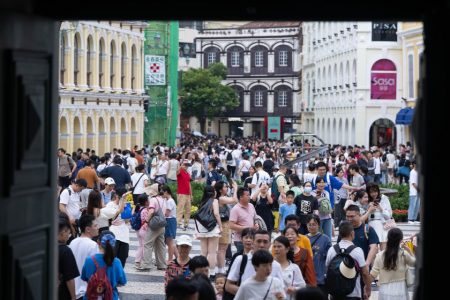A snapshot of Macao’s gaming industry at the end of last year showed challenges faced in the sector during the very last months of the pandemic, with both wages and job opportunities in the doldrums.
At the end of last year, the city’s casinos employed 52,174 full-time staff, 2,665 fewer than the year before; there were 23,721 dealers, a drop of 685. The number of service and sales workers fell by 932 to 3,967, figures from a Statistics and Census Service (DSEC) survey reveal.
Wages had flattened according to the survey, entitled Manpower Needs and Wages of the Gaming Sector.
On average, full-time gaming employees earned 23,680 patacas a month, excluding bonuses. This represented an increase of 1.8 per cent compared with last June, but was down by 0.1 per cent year-on-year. Dealers’ average earnings fell by 1.1 per cent to 19,800 patacas.
[See more: Top consultant says Macao’s bid to reinvent itself will be challenging]
The survey found there were only 13 jobs on offer in December, 45 less than in 2021 and in stark contrast to the present labour shortage in the wake of the lifting of travel restrictions in January.
The employee recruitment rate (0.2 per cent) remained unchanged year-on-year while the employee turnover rate (1.5 per cent) rose by 0.6 percentage points; the job vacancy rate fell to near zero. Some 803 employees quit their jobs.
The gaming sector made efforts to support staff during lean times. There were 283,677 participants attending vocational training courses organised or sponsored by gaming enterprises, the DSEC said. Almost half of the participants attended services courses, while a quarter followed business and administration courses.






